|
|
|
Книги издательства «Thames&Hudson»
|
Athanasius Kircher (1602-80) was acknowledged to be the most learned man of his age. By profession a Jesuit priest, he made himself an authority on every subject under (and above) the sun and published the results of his researches in over thirty lavishly illustrated volumes in Latin. His museum in Rome was famous and visited by everybody in the world of learning. Inevitably, his work has been superseded in most areas of study, but he remains a key figure in the history of ideas and in recent years there has been a revival of interest, in which Joscelyn Godwin has played a leading role. But while every other aspect of his thought has been studied, the fascinating engravings with which he illustrated his ideas have been largely ignored. This book fills that gap. It is divided into 15 chapters grouped by the engravings subject; these illustrations reveal his singular mind and the way he was drawn to mysticism and magic. |
|
In 2009, plans by New York mayor Michael Bloomberg to transform part of Broadway including Times Square into a pedestrian area caused a sensation, not just in the city but internationally. Urban areas where pedestrians have right of way over vehicles are becoming increasingly important in the modern city and have enjoyed growing popularity since the 1950s. Not only do they increase the quality of life of the residents, they also become an increasingly important locational factor. In general there are two types of pedestrian zones: the first serves primarily as an alternative transit route without cars, while the second is dedicated to shopping and entertainment in the form of traffic-free shopping streets and open pedestrian areas within shopping malls. Based on a careful selection of projects this volume presents the functional and design variety of these popular urban spaces. |
|
The physical model is an important communication tool for architects. Although the proliferation of CAD programmes has enabled the creation of increasingly complex computer models and virtual environments, there is also a growing need to address the three-dimensional qualities of architecture that may be lost when using such media. This book focuses on the inspiring possibilities for modelling the built environment with all the different media and techniques available. In describing the use of different models in different contexts, the book provides a practical guide to how and why models are used, and what they are used for. This second edition includes more detailed step-by-step exercises, expanded discussion of materials and techniques, updated coverage of digital techniques and new case studies. |
|
Landscape photography is one of the arts most accessible areas, whether you're just starting out or refining your vision. This book reveals the palette of techniques that will make your photography stand out from the crowd and win a place on a gallery wall. While other writers and bloggers concentrate on the technical aspects of landscape, this book will help you put those practical skills which are all in these pages too into use in a wider variety of ways, including styles popular with contemporary art customers. Readers will also gain an insight into how the Icelandic author was able to break out onto the global stage using online communities; invaluable advice for photographers at any stage in their career, but especially those at the start of it. |
|
One of Andrew Wyeths most important paintings, Wind from the Sea, a recent gift to the National Gallery of Art, is also the artists first full realization of the window as a recurring subject in his art. Wyeth returned to windows over the next sixty years, producing more than 250 works that explore both the formal and conceptual richness of the subject. Spare, elegant and abstract, these paintings are free of the narrative element inevitably associated with Wyeths better-known figural compositions. In 2014 the Gallery will present an exhibition of a select group of these deceptively realistic works, window paintings that are in truth skilfully manipulated constructions engaged with the visual complexities posed by the transparency, beauty and formal structure of windows. In its exclusive focus on paintings without human subjects, this catalogue will offer a new approach to Wyeths work, being the first time that his non-figural compositions have been published as a group. The authors explore Wyeths fascination with windows their formal structure and metaphorical complexity. In essays that address links with the poetry of Robert Frost and the paintings of Edward Hopper, Charles Sheeler and Franz Kline, the authors consider Wyeths statement that he was, in truth, an abstract painter. |
|
The Chateau de Versailles is one of the most beautiful and fascinating achievements of eighteenth-century French art. This unique book offers readers unprecedented access to this historical treasure. The world's most iconic chateau has welcomed tourists the world over, yet this handsome slipcased volume offers up the charm of a thousand and one hidden places in the chateau, its gardens, and pavilions. All were designed to surprise and delight the eye and all the senses at every turn, their ornate decoration forming an integral part of the elite lifestyle of the eighteenth century. This comprehensive volume captures the exquisite setting and inimitable ambience of Versailles and its gardens, from its intimate private spaces usually closed to the general public to the charming Petit Trianon and dairy farm created for the pure pleasure of Marie-Antoinette. |
|
In the summer of 1937, Walter Gropius, founder of the Bauhaus and a professor at Harvard's new Graduate School of Design, rented a house on Planting Island, near the base of Cape Cod. There, he and his wife, Ise, hosted a festive reunion of Bauhaus masters and students who had recently emigrated from Europe: Marcel Breuer, Herbert Bayer, Laszlo Moholy-Nagy, Xanti Schawinsky and others. Together they feasted, swam and planned their futures on a new continent, all sensing they were on the cusp of a momentous new phase in their lives. Yet even as they moved on, the group never lost its connection to the Cape Cod coast. Several members returned, when they had the means, to travel farther up the peninsula, rent cabins, buy land and design their ideal summer homes. Thus began a chapter in the history of modern architecture that has never been told until now. The flow of talent onto the Outer Cape continued and, within a few years, the area was a hotbed of intellectual currents from New York, Boston, Cambridge and the country's top schools of architecture and design. Avant-garde homes began to appear in the woods and on the dunes; by the 1970s, there were about 100 modern houses of interest here. In this story, we meet, among others, the Boston Brahmins Jack Phillips and Nathaniel Saltonstall; the self-taught architect, carpenter and painter Jack Hall; the Finn Olav Hammarstrom, who had worked for Alvar Aalto; and the prolific Charlie Zehnder, who brought the lessons of both Frank Lloyd Wright and Brutalism to the Cape. Initially, these designers had no clients; they built for themselves and their families, or for friends sympathetic to their ideals. Their homes were laboratories, places to work through ideas without spending much money. The result of this ferment is a body of work unlike any other, a regional modernism fusing the building traditions of Cape Cod fishing towns with Bauhaus concepts and postwar experimentation. |
|
Giovanni Benedetto Castiglione (1609-64) was perhaps the most innovative and technically brilliant Italian draftsman of his time. Working in oils on paper he produced large, vibrant compositions as works of art in their own right; his dramatic etchings were as intense as those of Rembrandt; and he combined drawing and printmaking to invent the technique of the monotype. Though highly esteemed for a century after his death, he has fallen from fame in the modern era. In this book, the first publication on Castiglione in decades, extensive new research reveals the story of the artists scandalous private life, in fascinating contrast to the ethereal beauty of his art. Illustrated with over 80 of Castigliones extraordinary works from the Royal Collection, this catalogue restores his reputation as one of the great artists of the Baroque. |
|
Comprehensive and sophisticated in its approach, Metalsmithing for Jewelry Makers is the ultimate reference for jewelry makers of all levels. Exploring a wide range of both precious and non precious metals, traditional methods are examined alongside contemporary styles and adaptations to offer a unique and inspirational insight into the art and craft of jewelry making for todays artisan. Freshly commissioned, full-colour photographs accompany detailed step-by-step tutorials, while comprehensive sidebars detail the relevant considerations for applying each technique to a variety of different metals, with cross-references where applicable. The book is peppered throughout with profiles of contemporary practitioners, providing readers with an understanding of a wide range of different working methods, materials and developing techniques. It also features a variety of inspirational galleries that showcase eye-catching examples of contemporary work, highlighting the stunning effects that can be achieved with each technique. |
|
Ranging from Kentchurch Court, a former fortified medieval manor house that has been the seat of the Scudamore family for nearly 1,000 years, to a delightful Strawberry Hill-style Gothic house in rural Cornwall to a ducal palace (Badminton) to car-crazed Goodwood House, this beautifully illustrated book showcases ten outstanding British country houses all still in the hands of descendents of the original owners. James Peill recounts the ups and downs of such deep-rooted clans as the Cracrofts, landowners in Lincolnshire since the twelfth century, whose late 18th-century Hackthorn Hall is a perfect example of the kind of house Jane Austen describes in her novels (indeed, she appears on their family tree), as well as the relatively newly arrived Biddulphs, who constructed Rodmarton, an Arts & Crafts masterpiece, in the first decades of the last century. James Fennell has once again provided superb photographs of a wealth of gardens, charming interiors, bygone sporting trophies, fine art collections and fanciful family memorabilia, making The English Country House a delicious treat for Anglophiles and lovers of old houses. |
|
Gordon Parks (1912-2006) was a pioneering figure in 20th-century photography. As well as being the first African-American photographer to join the Farm Security Administration (FSA) and to become a staff photographer for Life magazine, he was also a writer, film director and composer. Although best known for documenting issues such as poverty, race relations and civil rights, he was remarkably versatile, turning his gift for visual narrative to subjects as diverse as news coverage, fashion, art and sport. He also captured prominent figures of his era, from Malcolm X to Marilyn Monroe, in a series of memorable portraits. Working in the US and around the world, he was driven by a commitment to social justice: The common search for a better life and a better world is deeper than colour or blood. |
|
The jewel-like watercolors of renowned Irish botanical artist Wendy Walsh portray a personal selection of about 100 plants that grow wild in Ireland or are cultivated in Irish gardens. Presented in 33 thematic sections, Walsh's subjects range from well-loved and distinctive native plants to exotic species introduced from the New World and Asia, unusual plants that grow in some of the most extreme environments in Ireland, and striking hybrids created by plant breeders. Lively and accessible horticultural descriptions by distinguished botanist E. Charles Nelson accompany the paintings, celebrating the story of each plant along with its natural beauty. The great gardens, famous plants men, fascinating journeys and natural phenomena that have shaped the flora of Ireland spring to life in Dr Nelsons engaging text. This elegant and unconventional guide will kindle the imagination of any plant lover or admirer of the Irish landscape. |
|
The arts and crafts of Morocco express a centuries-long intermingling of influences from Africa, Islam, and from the alliance of the Moors and the Spaniards. Yet despite their versatility and diversity, Moroccan crafts are relatively little known outside the country. The author's account, based on his own first-hand research, examines all the media one-by-one: textiles, jewelry; leather, wood and metalwork; and pottery and ceramics. These objects derive either from a rural lifestyle, with symbols and patterns that express the powerful animistic beliefs of the Berber country artisans, or from the cities, in which Islamic tenets provide the vigorous context. All of them are thus endowed with a spiritually charged meaning to add both their utility and to their beauty. This book contains guidance for collectors and analyzes the belief systems, festivals and ceremonies to which the arts relate. |
|
Explore a truly astonishing range of interests, philosophies, religions, and cultures — from alchemy to angels, Buddhism to Hinduism, myth to magic. The distinguished authors bring a wealth of knowledge, visionary thinking, and accessible writing to each intriguing subject in these lavishly illustrated, large-format paperback books. |
|
Egon Schiele lived in Vienna during its last years as capital of the declining Habsburg Empire. Rejected by his family and hounded by society for his interest in young girls, he expressed through his art a deep and bewildering loneliness and an obsession with sexuality, death and decay. Schiele died at the age of twenty-eight, yet he left behind him a body of work that sustains a huge public reputation and myth. This profusely illustrated book delves into both the controversial sexual themes and neglected aspects of Schieles art, notably his formal experiments and his later expressionist portraits and allegorical paintings works that reveal much about the importance of his short career. |
|
Lucian Freud Portraits surveys his portraits and figure paintings from across his long career. Drawing together the finest portraits from public and private collections around the world, the book explores Freud's stylistic development and technical virtuosity. A series of previously unpublished interviews conducted by Michael Auping between May 2009 and January 2011 reveals the artist's thoughts on the complex relationship between artist and sitter, the particular challenges of painting nudes and self-portraits, and his views on other painters he admired. Freud's psychological portraits are often imbued with a mood of alienation. A private man, the artist's close relationship with his sitters was played out behind the closed door of the studio. Frequently there is the sense of an emotionally charged drama unfolding, but his subjects remain elusive. Sitters represented in the book include family members, particularly his mother, Lucie, and artists such as Frank Auerbach, Francis Bacon and David Hockney. In the early 1990s Freud produced a series of monumental paintings of the performance artist Leigh Bowery and Bowery's friend Sue Tilley, the benefits supervisor, examples of which are reproduced in this book. |
|
The British Museums vast collections include wonderful images of birds from all over the world. Some are primarily decorative, whereas Thomas Bewick and the Japanese artist Kitagawa Utamaro chose to show birds in realistic detail, going about their daily lives. Other artists concentrate on scientific accuracy. The endless variety of birds, their freedom of sky, land and water, and especially t heir song have also inspired writers through the ages. Each striking image in this beautiful anthology is matched with a poem about the same species. Some were composed by our best — loved writers including Shakespeare, Chaucer and Tennyson and others ha ve been selected from less familiar or even anonymous voices around the world. Now in a fresh new paperback format, this is an irresistible gift for anyone who loves birds. |
|
Cats were first domesticated or, more likely, noticed a warm fireside and chose to domesticate themselves many thousands of years ago. Over the centuries they have performed a useful role as pest controllers, but much more as friends and companions of humans. Cats have always inspired writers and artists. They appear in Egyptian papyri and tomb paintings, in Roman mosaics, in Japanese prints, in Old Master drawings and engravings. At different times and places they have been worshipped, mummified, associated with superstition and black magic, and bred as domestic pets. This delightful illustrated anthology includes a selection of the many poems, anecdotes and quotations about cats which have been written over the centuries: the charming, the funny, the sad, the exasperated, and the heartfelt. In a fresh new paperback format with a selection of new images, this is a n irresistible gift for anyone who likes cats. |
|
Textile design has been liberated and democratized by digital media. With new technology allowing for more precise manipulation and larger variation of materials and patterns, textile designers have found new ways to create ambitiously, experiment, and be inspired. At the same time, the rise of digital processes has led to a renewed appreciation of traditional craftsmanship and the handmade, and of the tactility and construction of textiles and surfaces. In The Pattern Base, Kristi O Meara, designer and creative director of the Chicago-based design studio The Patternbase, showcases more than 550 textile, surface, fashion, and print designs from over 150 designers working around the world. Part One is a sourcebook of these designs, organized by type of pattern: Geometric, Floral, Representational, Digital Abstract, Illustrative, and Fabric Swatches. Part Two presents profiles of fifteen artists, constituting the hottest up-and-comers in the field, including Lorenzo Nanni, whose delicate beadwork conjures the natural world s flora and fauna; Anita Hirlekar, whose felt, velvet, and lace work create luscious variations of texture; and Kayla Mattes, mistress of kitsch aesthetics and material experimentations. |
|
Despite living through some of the most dramatic changes of the twentieth century, Stanley Anderson CBE (1884-1966) created a vision of an essentially timeless English rural tradition in his etchings and woodcuts. His training was as an engraver, first on a heraldic engraving apprenticeship with his father and later at the Royal College of Art and Goldsmiths College, London. Anderson became a master of his craft: elected a fellow of the Royal Society of Painter-Etchers and Engravers in 1923. When he later took up woodcutting, he became immersed in a technique that was considered as deeply English as the subjects he depicted. Anderson was a key figure in the revival of engraving in the 1920s. The techniques exacting craftsmanship, intimate scale and indelible sense of historicism were a stark contrast to the modernist explosion. This catalogue raisonne gathers together for the first time the complete uvre of Anderson's prints, from the townscapes of his early career to the fascinating twenty-year study of rural crafts, including hedge-laying, carpentry and barrel-making, that he carried out towards the end of his life, and for which he is best known. |
|